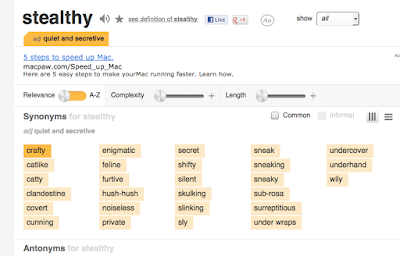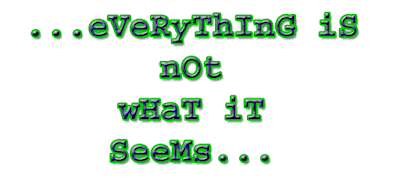Stealth testing?!
What would you do if you were in the standardized testing business and realized that more and more parents were refusing to let their kids take your high profit assessments? Perhaps you would team up with the tech industry to design "educational" games and programs that secretly recorded student scores without the kids even knowing. Perhaps you would think that kids just love computer games and you could trick them into thinking that it is fun, and trick their parents into believing that your products increase learning.
We are all somehow getting used to giving up privacy, as each stoke of our keyboard records our shopping habits, auctions off our IP address to the highest bidder, and posts an ad on our screens in split seconds. We accept that if we search a personal topic, some company will quickly advertise a product or two related to it, even if we don't want anyone to know we searched it. But is there a line to be drawn? Are our children to be used as data creators to keep the demand for "educational" tech products high?
 |
| Trust teachers, not technology. |
The tech industry, like the testing industry knows a lot about its own field, but what do they know about teaching and learning? In this research summary, MIT has published the work of a professor and a researcher from Florida (One of the worst states for detrimental education reforms). To an MIT alum, this "... approach that embeds performance-based assessments in digital games..." may sound like a golden idea. But then again, MIT grads are not highly trained and experienced in developmental psychology, teaching, and learning.
"They argue that using well-designed games as vehicles to assess and support learning will help combat students’ growing disengagement from school, provide dynamic and ongoing measures of learning processes and outcomes, and offer students opportunities to apply such complex competencies as creativity, problem solving, persistence, and collaboration. Embedding assessments within games provides a way to monitor players’ progress toward targeted competencies and to use that information to support learning."
If there is any "growing disengagement from school" it likely comes from state mandates and pressure on teachers to raise test scores. I know lots of creative and innovative teachers who have students excited about learning.
"These stealth assessments are intended to measure levels of creativity, persistence, and conceptual understanding... during game play. Finally, they consider future research directions related to stealth assessment in education."
 |
| Who'd have thought it would come to this? |
Last time I checked, teachers provide feedback to schools and parents about creativity, persistence, and conceptual understanding in students. School districts are actually already paying teachers to do their jobs, why should they also pay for technology to do so? Some would question the use of tax dollars. But the bigger question is the ethical one regarding testing children when they do not know they are being tested. If you were being tested, wouldn't you want to know? As a parent, don't you want to know when your kids are being tested? Wouldn't you want to be able to see the test questions?
And if you have any doubt about the dubious roots of stealth testing, know that the report above was funded by the MacArthur Foundation, which is chaired by a former Pearson executive:
Dame Marjorie M. Scardino is
the chairman of MacArthur's Board. She was for 16 years the chief
executive of Pearson, an international education and media group
headquartered in London whose business was primarily education, but also
included The Financial Times Group, Penguin books, Pearson Education,
and half of The Economist Group. - See more at:
https://www.macfound.org/about/people/board-directors/#sthash.iQ8I1fWp.dpuf
Dame Marjorie M. Scardino is
the chairman of MacArthur's Board. She was for 16 years the chief
executive of Pearson, an international education and media group
headquartered in London whose business was primarily education, but also
included The Financial Times Group, Penguin books, Pearson Education,
and half of The Economist Group. - See more at:
https://www.macfound.org/about/people/board-directors/#sthash.iQ8I1fWp.dpuf
Check out their entire Board of Directors here. Not an educator in sight.
I have heard the MacArthur Foundation's name all over NPR, and guess what? NPR promoted the idea of stealth testing here. NPR reports:
"The major textbook publishers, plus companies like Dreambox, Scholastic and the nonprofit Khan Academy, all sell software for students to practice math and English. These programs register every single answer a student gives." Do these names ring a bell? Ask your kids... you may be surprised.
"The companies that develop this software argue that it presents the opportunity to eliminate the time, cost and anxiety of "stop and test" in favor of passively collecting data on students' knowledge over a semester, year or entire school career. Valerie Shute, a professor at Florida State University and former principal research scientist at ETS, coined the term "stealth assessment" to describe this approach."
"Stealth assessment doesn't just show which skills a student has mastered at a given moment. The pattern of answers potentially offers insights into how quickly students learn, how diligent they are and other big-picture factors."
"Invisible, integrated assessment, to me, is the future," Kimberly O'Malley, the senior vice president of school research at Pearson Education, told me. "We can monitor students' learning day to day in a digital scenario. Ultimately, if we're successful, the need for, and the activity of, stopping and testing will go away in many cases."
Do we really want Pearson monitoring our kids daily?
The government has actually weakened student privacy laws and is working hand-in-hand with the tech companies to get them a piece of our tax dollar pie. That is why groups like Student Privacy Matters are important.
COPPA, the Children’s Online Privacy Protection Act sounds like a law that protects our kids... but not that much.
Forbes reports, “The primary goal of COPPA,” wrote the FTC in the FAQ, “is to place parents in control over what information is collected from their young children (under 13) online.”
Under 13? What happened to minors being under 18?
"The Rule, according to the agency, 'applies to operators of commercial Web sites and online services (including mobile apps) directed to children under 13 that collect, use, or disclose personal information from children, and operators of general audience Web sites or online services with actual knowledge that they are collecting, using, or disclosing personal information from children under 13.'
The document covers issues including COPPA enforcement, privacy policies and notifications, geolocation data, verifiable parental consent and COPPA in schools."
That means that if your kids are 13 or older, nobody is asking you permission for anything on-line.
Had enough yet?
If parents don't push back, not only are our tax dollars being squandered, but our children are being data mined as part of their school day and have become mere commodities instead of precious human beings learning in their own unique ways.
"Jennifer Jacobsen, a Connecticut public school parent and privacy advocate stated, 'My children do not go to school to have their meta-data analyzed. They do not go to school to have advertising embedded within their on-line instructional materials. They do not go to school to have every detail about them uploaded and accessed by people I do not know. They do not go to school to be employed as unpaid product development specialists or forbid, plugged into a laptop all day. They go to school to be inspired, enlightened, impassioned seekers of knowledge, to become able citizens and follow their dreams.'" Read more here.
Talk to your neighbors, friends, school board members, and take action before it is too late.







This comment has been removed by a blog administrator.
ReplyDeleteThis comment has been removed by a blog administrator.
ReplyDelete